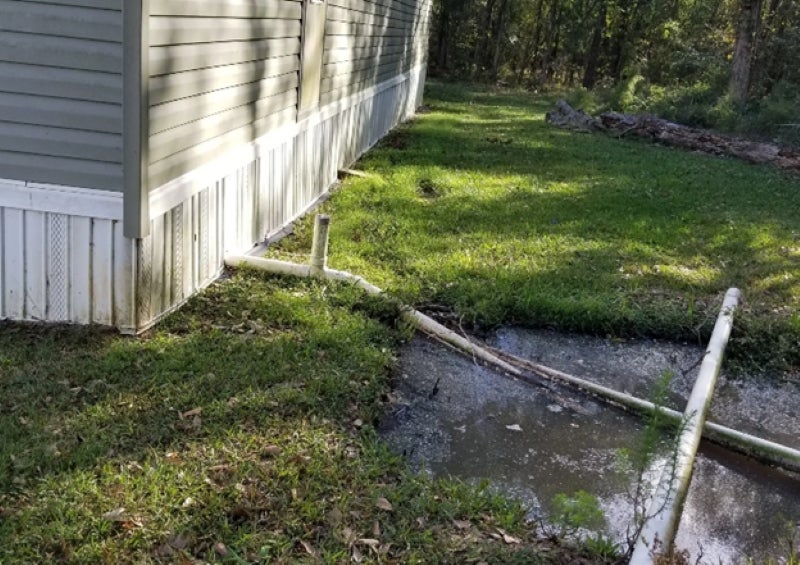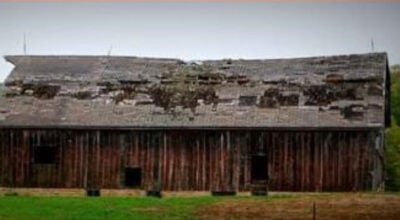DOJ reaches historic agreement with ADPH sewer problems
Published 5:30 pm Thursday, May 4, 2023
|
Getting your Trinity Audio player ready...
|
Updated June 7, 2023
The lack of proper septic and sewer services for some of Lowndes County’s poorest residents has been the subject of countless news articles, at least one book, and a source of anxiety and hardship for many local residents. Now, the ailing sewer system is the subject of an historic agreement between the United States Department of Justice and Health and Human Services (DOJ) and the Alabama Department of Public Health (ADPH).
After an 18-month investigation, DOJ Assistant Attorney General Kristen Clarke announced today that the Justice Department had reached an agreement with ADPH regarding the agency’s handling of some Lowndes County residents lacking proper sewer systems and who are protected under federal laws.
The DOJ launched it’s investigation to determine whether ADPH had violated Title VI of the Civil Rights Act of 1964 and Section 1557 of the Affordable Care Act. Title VI bans recipients of federal funds from discrimination based on race, color or national origin when participating in federally funded programs and activities. Section 1557 ensures that no person can be excluded from or denied benefits from any health program or any part of a program that receives federal financial assistance.
The two agency’s entered into a voluntary agreement to address concerns revealed in the investigation.
“This agreement marks the first environmental justice settlement ever secured by the Justice Department under our civil rights laws,” Clarke stated. “Our work in Lowndes County should send a strong message regarding our firm commitment to advance environmental justice, promoting accountability and confronting the array of barriers that deny Black communities and communities of color access to clean air, clean water, and equitable infrastructure across our nation.”
The ADPH issued this statement, “ADPH has been working in collaboration with others, including the Centers for Disease Control and Prevention (CDC), state universities, and local community groups to address the onsite sewage and other public health issues in Lowndes County. For clarification, the Department of Justice interim agreement (https://www.justice.gov/opa/press-release/file/1582566/download [justice.gov]) does not indicate a finding against ADPH. ADPH welcomes the agreement, as it allows us to advance efforts that were already underway to address the sewage issues in Lowndes County. ADPH maintains that no rights were violated by ADPH, and the Department of Justice affirmed that in its settlement. “
In a May 4 press release, DOJ Law Enforcement Coordinator and Public Information Officer Doug Howard said the investigation into the ADPH found that Health Department enforcement of sanitation laws threatened residents with criminal penalties and possible property loss for sanitation problems that they had neither the money or ability to correct.
Howard also stated that ADPH engaged what it called “a consistent pattern of inaction and/or neglect concerning the health risks associated with raw sewage”. In the media release, Howard stated, “The investigation revealed that despite ADPH’s awareness of the issues and the disproportionate burden and impact placed on Black residents in Lowndes County, it failed to take meaningful actions to remedy these conditions.”
When asked by Lowndes Signal for comment, the ADPH released this written statement, “The Alabama Department of Public Health (ADPH) was cooperative with the investigation conducted by the Departments of Justice and Health and Human Services. ADPH maintains that it has never conducted its onsite sewage or infectious diseases and outbreaks programs in a discriminatory manner. ADPH is pleased to have been able to reach this agreement and looks forward to its implementation to benefit residents of Lowndes County.”
The U.S.Attorney for the Middle District of Alabama Sandra J. Stewart said today’s announcement will help many families in need.
“This agreement creates a path towards sustainable sanitation solutions,” Stewart said. “The measures required in the agreement will improve public health and the environment for the residents of Lowndes County. My office is proud to support the community and the parties in reaching these important goals.”
The agreement calls for the following actions to be taken by the state health department:
- Suspending criminal penalties and liens;
- Examining public health risks within Lowndes County;
- Launching a public health awareness campaign;
- Providing public health educational material for Lowndes County health care providers;
- Conducting assessments to determine appropriate septic and wastewater management systems;
- Creating a sustainable and equitable public health and infrastructure improvement plan; and
- Consistently engaging with the community (source: https://www.justice.gov/ )
Health and Human Service Office of Civil Rights Director Melane Rainer said the agreement is a testament to racial justice.
“Environmental justice is a public health issue, and where you live should not determine whether you get sick from basic environmental hazards not faced in other affluent and white communities. We are pleased that Alabama’s public Health Department has committed to take immediate and long-term steps to protect the health of Lowndes County residents,” Rainer said.
Meanwhile, the Lowndes County Unincorporated Wastewater Project (LCUWP) continues to accept applications from residents needing help with septic systems in West Lowndes County Communities.
Applications are available at the LCUWP office at the Lowndes County Health Department. Call (334) 548-2006 on Wednesday or Thursdays between 10 a.m. and 3 p.m. for information.





